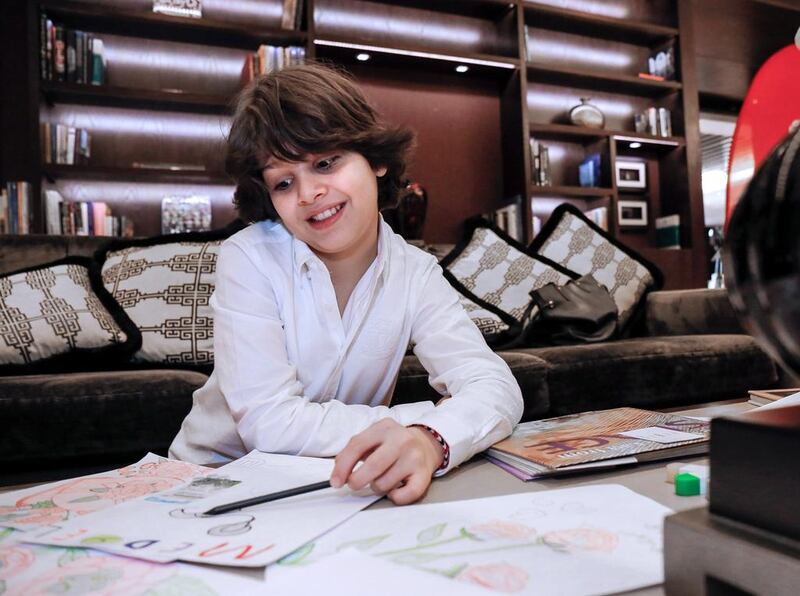SHARJAH // Anas Saloota enjoys football, mathematics and drawing animals like other 11-year-old boys.
But he knows his world would be very different if not for a hearing aid that he had fitted when he was just 2 years old.
Anas has had a tough start to life. Born two months premature in Syria, his hearing loss was discovered relatively late by doctors. He later lost his right hand in an accident.
A charity paid for the cochlear implant that has changed his life.
His mother, Hala Fares, spoke about what she went through at a recent event held by the Ministry of Health and hearing-aid company Med-El to encourage more parents to check their children’s hearing.
“Just after Anas was born, he spent some time in the hospital nursery because there were complications,” Mrs Fares said.
“He weighed just 1 kilogram but then grew normally and was doing well. When he turned 2, I started noticing that he would not react to loud noises, like a door slamming in the house. I didn’t think it was anything serious.”
When Anas came down with flu, Mrs Fares took him to a doctor, who noticed his problem with hearing and referred him to a specialist.
A charity provided the funds for Anas to have a hearing implant fitted soon afterwards in Syria. The corrective surgery can cost about Dh150,000.
“Anas has grown up as a normal child. In fact, he is a very special boy compared to other children his age,” Mrs Fares said, adding that his older sister, one of four other siblings, helped with his speech therapy.
“He is outgoing and confident, and loves talking to people. His hearing issues are unnoticeable.”
Doctors can perform similar operations on infants as young as six months, where flexible electrodes linked to a hearing device behind the ear are attached in an operation under general anaesthetic. The operation takes between two and three hours.
The device is splashproof but needs a waterproof cover if Anas wants to swim.
“When I grow up I would like to be creative, maybe an artist,” he said. “I would like to be able to make things that I could then sell. I have so many ideas.”
The World Health Organisation estimates about 3 per cent of people in the Middle East and North Africa have disabling hearing loss.
Although compulsory hearing tests for newborn babies are carried out at government hospitals under a directive introduced by the Ministry of Health in 2015, they are not always done at private hospitals.
David Raetz, chief executive of Med-El Middle East, would like the tests to be mandatory at all hospitals to improve the prognosis for deaf babies.
“Tests for newborns are so important. In Europe and North America, hearing screening is always done as part of the standard medical tests,” Mr Raetz said. “It happens very rarely that someone slips through the net. It is not an extensive test, just a simple infrared marker placed in the ear that measures the brain’s response to noise.
“Doctors can then check if everything is intact, or if there is a problem.
“Getting help early can change someone’s life.”
nwebster@thenational.ae






